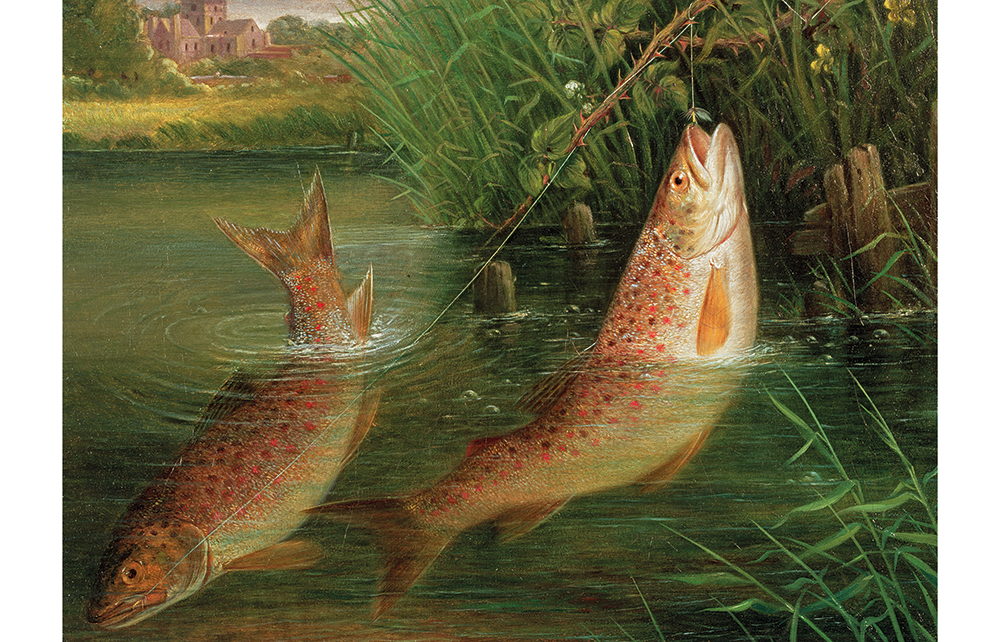Despite its many centuries of popularity – enthusiasts have ranged from Cleopatra to Eric Clapton – angling has been the subject of precious little historical scholarship, giving rise instead to anecdotalists or grim technicians. So Chris McCully’s latest animated and vigorous addition to the Bibliotheca piscatoria arrives as fresh and welcome as a run of summer salmon from the estuary.
The lexicon of angling, he suggests, can encode cultural histories – and so it does. The result is a stargazy pie of a book rich in natural lore and quirks, assembled with etymological rigour and finished with crisp wit. Drawn from diverse literary, ichthyological and halieutic sources – I ought to refrain from saying that McCully has cast his net wide – it spans Aelfric’s Colloquy and modern electronic resources, and runs from ‘adipose fin’ (that heraldic appendage of certain salmonids) to ‘zed’ (a nickname for the zander, misleadingly called the pike-perch, though it is no hybrid). As a fishing aficionado of some 60 years, I found it erudite and intriguing.
A few of the attestations are arresting: McCully cites Chaucer on bream and Dorothy Wordsworth’s journal for ‘pike float’. Some associated terms have leached into mainstream English – ‘loggerhead’, an appellation for the chub, owes nothing to trees; ‘logger’ is an old term for ‘clumsy’ – whereas others are falsely derived. The derogatory ‘old trout’ is not truttaceous, but stems from the Anglo-Norman ‘trot’, meaning a hag. Like the pastime itself, and Izaak Walton’s classic, it is full of curiosities, yet nicely prinked with orismology. So if you want to know how to tell a loach from a gudgeon (the former sports six whiskery barbules) or where to obtain isinglass (from the dried swim bladder of a sturgeon) or how the guppy got its name (from the Trinidadian naturalist R.J. Lechmere Guppy), then enquire within.
The term ‘old trout’ has nothing to do with fish but comes from the Anglo-Norman ‘trot’, meaning ‘hag’
Before we even arrive at regional and dialectal variations, some of the Linnaean designations are striking enough.







Comments
Join the debate for just £1 a month
Be part of the conversation with other Spectator readers by getting your first three months for £3.
UNLOCK ACCESS Just £1 a monthAlready a subscriber? Log in